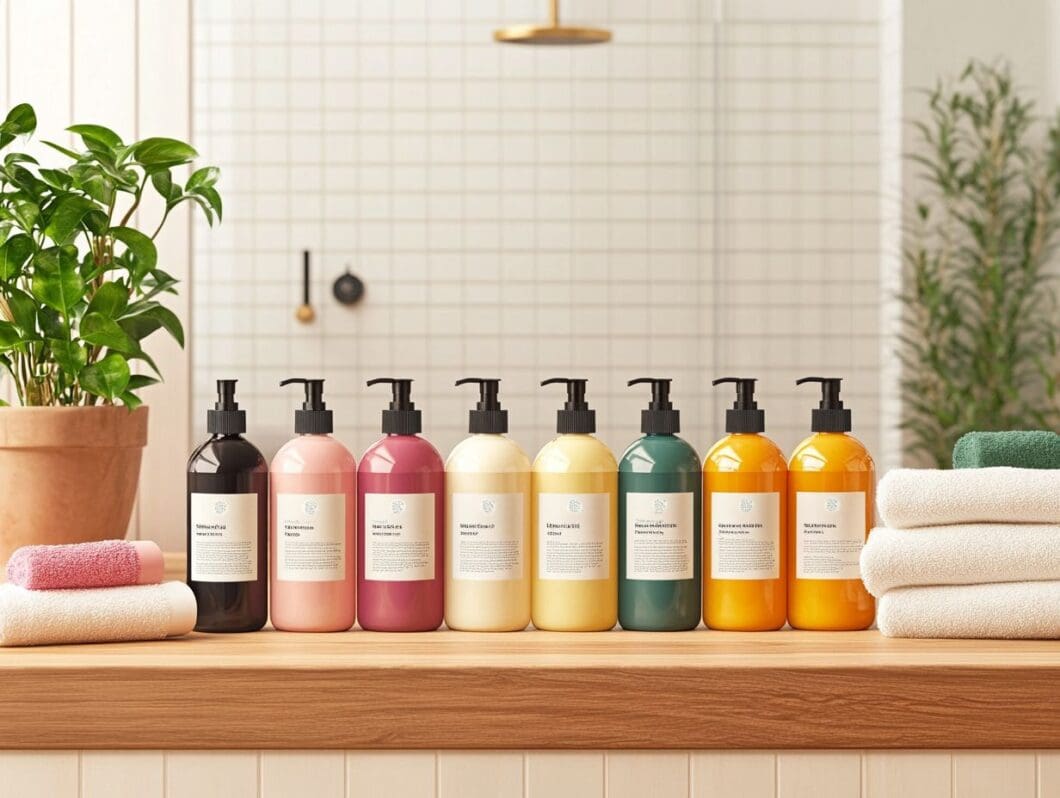Sulfate-free shampoos have gained significant popularity in recent years, appealing to those seeking gentler hair care options.
But what exactly are they, and why should you consider making the switch?
This article explores the definition and purpose of sulfate-free shampoos, their benefits for various hair types, and potential drawbacks to keep in mind.
It also provides tips on choosing the right one for you and discusses alternatives that might better suit your needs.
Whether you’re looking to preserve your color-treated locks or simply want a milder cleanse, understanding sulfate-free shampoos can help you make informed choices for healthier hair.
Key Takeaways:
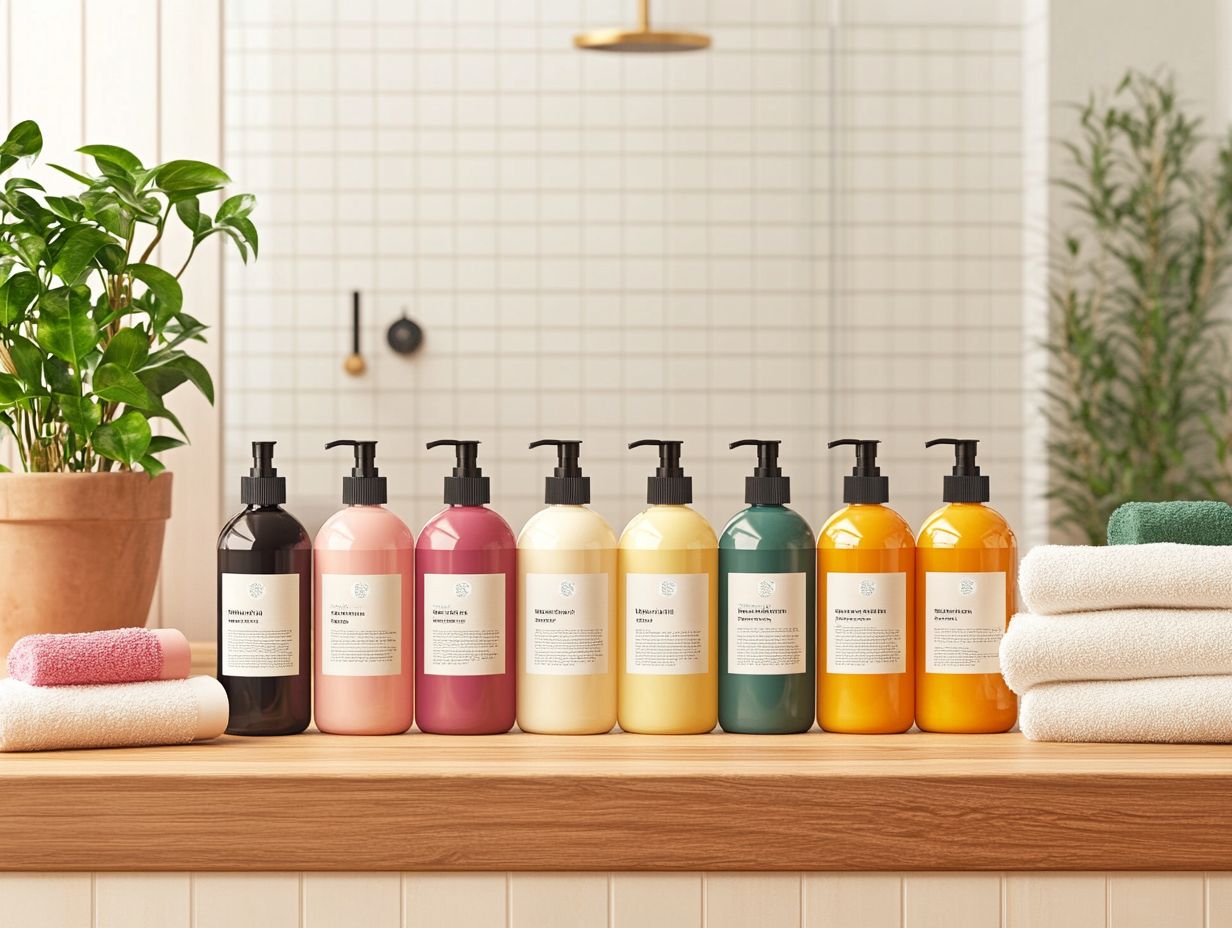
What are Sulfate-Free Shampoos?
Sulfate-free shampoos are hair care products specifically formulated without sulfates, such as sodium lauryl sulfate and sodium laureth sulfate, which are recognized for their harsh cleansing properties. These shampoos aim to deliver a gentler cleansing experience, minimizing scalp irritation and promoting overall hair health.
They are designed to accommodate various hair types, particularly for individuals seeking to maintain moisture retention in curly hair or prevent protein loss in dry hair. By opting for sulfate-free alternatives, consumers not only support scalp health but also enhance the effectiveness of their overall hair care regimen.
Benefits of Using Sulfate-Free Shampoos
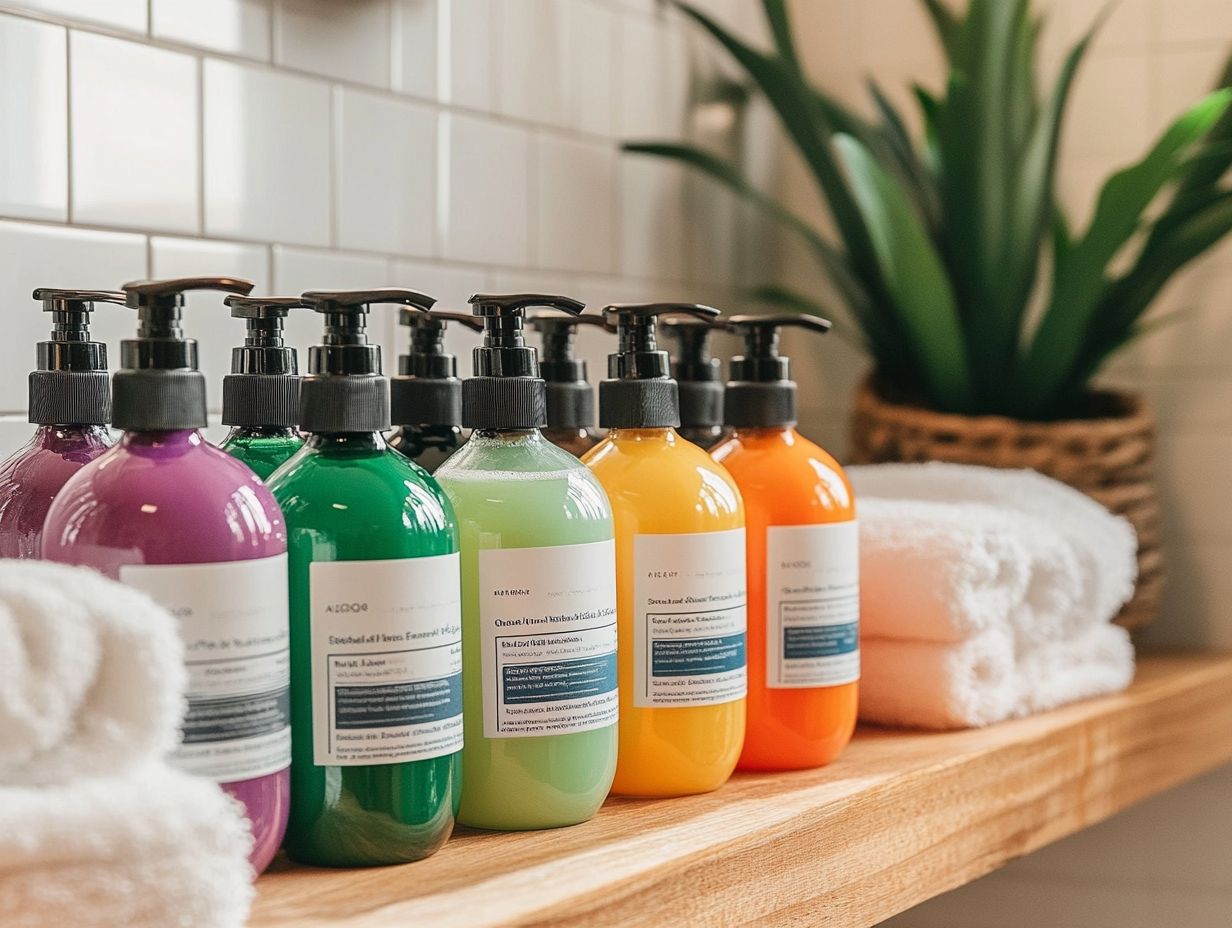
Utilizing sulfate-free shampoos presents numerous advantages for the health of both hair and scalp, particularly for individuals with curly or dry hair types. These shampoos effectively mitigate common concerns such as scalp irritation and protein depletion, while also enhancing moisture retention to ensure that hair remains hydrated and vibrant.
Consequently, sulfate-free options have gained preference within the beauty industry, particularly among individuals with curly hair who require additional care for their distinctive hair structure.
For Different Hair Types
Sulfate-free shampoos offer significant advantages for various hair types, including curly and dry hair, as they help maintain essential moisture and prevent damage. This is particularly important for curly hair, which tends to be drier and more susceptible to frizz. Therefore, individuals with curly hair should select products that do not strip away natural oils.
Moreover, those with color-treated hair can greatly benefit from the use of sulfate-free shampoos, as these products assist in preserving vibrant hues while minimizing fading. The gentle cleansing properties of sulfate-free shampoos are specifically designed to nurture the hair, enhancing its softness and shine.
To optimize the benefits, it is advisable to pair sulfate-free shampoo with a nourishing conditioner, which further replenishes moisture and restores elasticity. Conditioners formulated for specific hair types, whether aimed at providing hydration for dry strands or enhancing curl definition, can significantly improve overall hair health.
In conclusion, by selecting the appropriate products, individuals can achieve beautifully manageable hair, regardless of their unique texture or treatment.
Potential Drawbacks of Sulfate-Free Shampoos
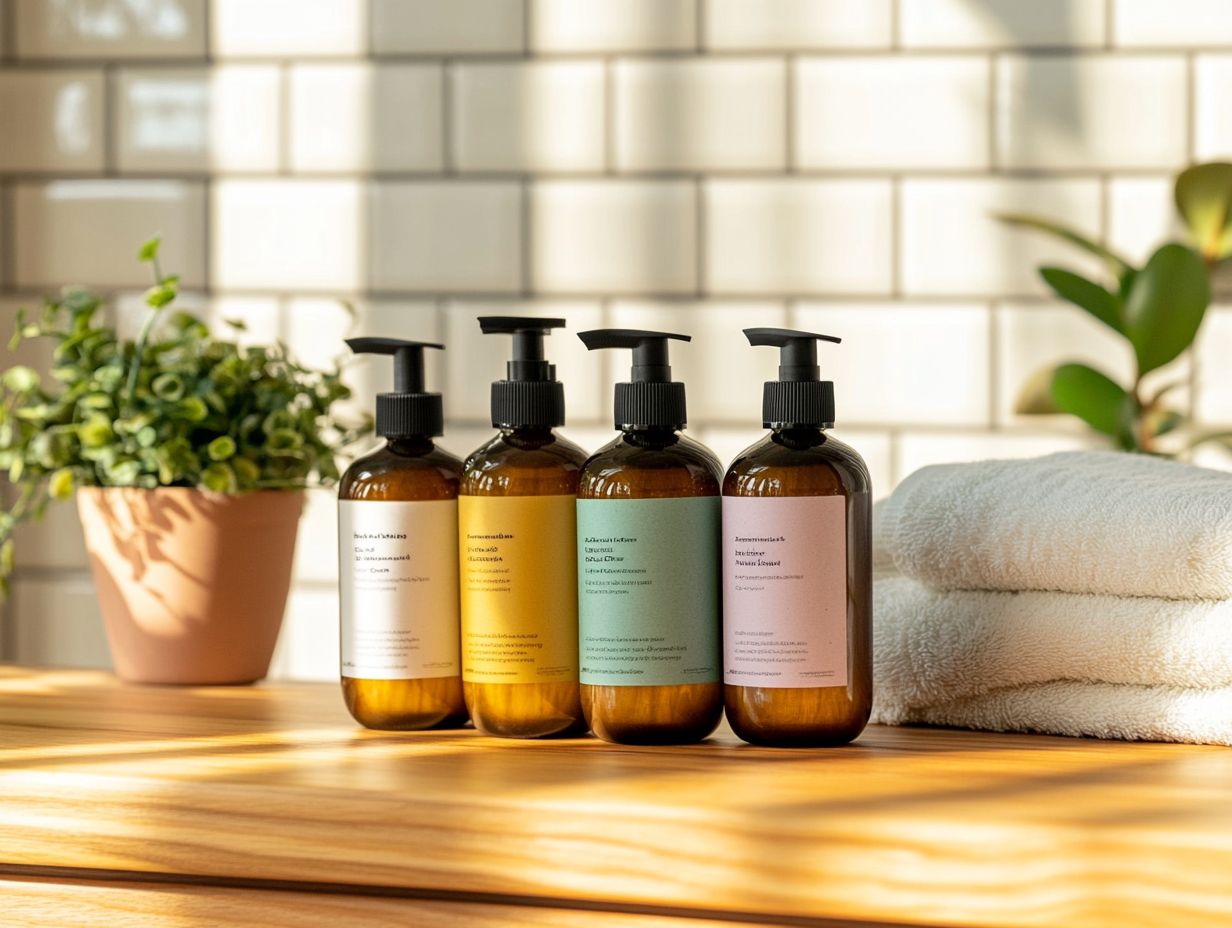
Sulfate-free shampoos are often regarded as a healthier option; however, they may present certain drawbacks that users should consider. For individuals accustomed to traditional cleansing agents, sulfate-free formulations may prove less effective in cleansing the hair.
Additionally, some users might experience product build-up and may need to incorporate a clarifying shampoo periodically to effectively remove residue from hair products. It is crucial to evaluate the benefits alongside these potential side effects in order to establish the most appropriate hair care regimen.
Side Effects and Considerations
The side effects of sulfate-free shampoos may include scalp irritation or potential hair loss, particularly due to improper product formulation. This is especially relevant for individuals who make a sudden transition from sulfate-rich shampoos. It is essential to monitor any changes in hair and scalp health during this transition to sulfate-free options.
It may be beneficial for users to gradually incorporate sulfate-free products into their hair care routine, allowing the scalp to acclimate to the new ingredients. This thoughtful approach can significantly mitigate the risk of adverse reactions, such as dryness or excessive oiliness, which are often associated with abrupt changes in product usage.
Formulations that are rich in natural oils, botanical extracts, and mild surfactants can facilitate this transition, minimizing irritation while preserving hair vitality. Consulting with a dermatologist or hair care specialist can provide tailored recommendations that address specific needs, ensuring a healthy and effective hair care regimen.
How to Choose the Right Sulfate-Free Shampoo
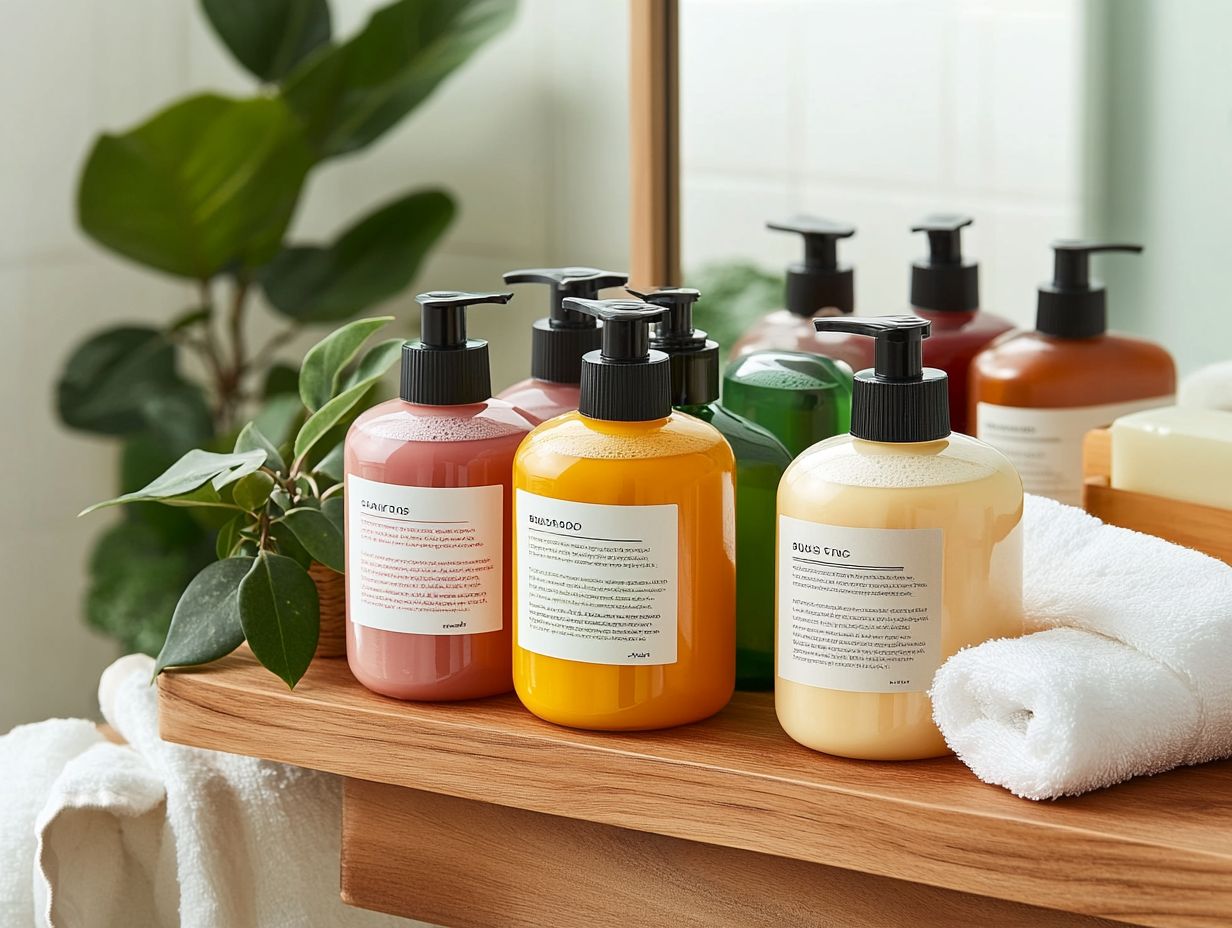
Selecting the appropriate sulfate-free shampoo necessitates a comprehensive understanding of one’s specific hair type and individual needs. It is important to consider various factors, including the types of cleansing and conditioning agents incorporated in the formulation.
Given the multitude of sulfate-free products available, a thorough evaluation of ingredients, pH levels, and any additional benefits is essential. This ensures that the chosen product aligns with one’s hair health objectives.
Factors to Consider
When selecting sulfate-free shampoos, it is essential to consider factors such as hair type, the efficacy of cleansing agents, and the presence of beneficial ingredients, including essential oils for moisture retention. Each component significantly influences the overall performance of the product on your hair.
For example, individuals with fine or oily hair may find that lighter formulations containing gentle surfactants provide effective cleansing without stripping the hair of its natural oils. In contrast, those with thick or curly hair may prefer richer formulas, as these hair types typically require enhanced moisture and hydration.
Additionally, the choice of oils, such as argan or coconut, can further improve the shampoo’s effectiveness by nourishing the hair strands and reducing frizz. A thorough understanding of these factors aids in the selection process, ensuring that the chosen sulfate-free shampoo not only cleanses efficiently but also promotes overall hair health and vitality.
Alternatives to Sulfate-Free Shampoos
For individuals exploring alternatives to sulfate-free shampoos, options such as gentle cleansers and clarifying shampoos can offer effective cleansing without the harshness associated with traditional sulfates.
These alternatives are particularly beneficial for those who require a deep clean on occasion while still prioritizing hair health and moisture retention.
Other Types of Shampoos and Their Uses
Other types of shampoos, such as clarifying shampoos, serve specific purposes within hair care routines, particularly when addressing issues like product build-up or excess oil. These shampoos typically contain more potent cleaning agents designed to deliver a thorough cleansing, while sulfate-free products provide gentler alternatives aimed at preserving hair health and moisture.
Volumizing shampoos are specifically formulated for individuals seeking to enhance body and fullness in flat hair strands, whereas moisturizing shampoos are ideal for those with dry or damaged hair, as they assist in restoring shine and vitality. For color-treated hair, it is essential to use a specialized formula that protects color vibrancy and prevents fading.
Each type of shampoo plays a vital role in a comprehensive hair care regimen, addressing individual concerns and promoting overall hair wellness.
Understanding these variations enables individuals to make informed choices when selecting the appropriate shampoo, ultimately enhancing the appearance and health of their hair.


